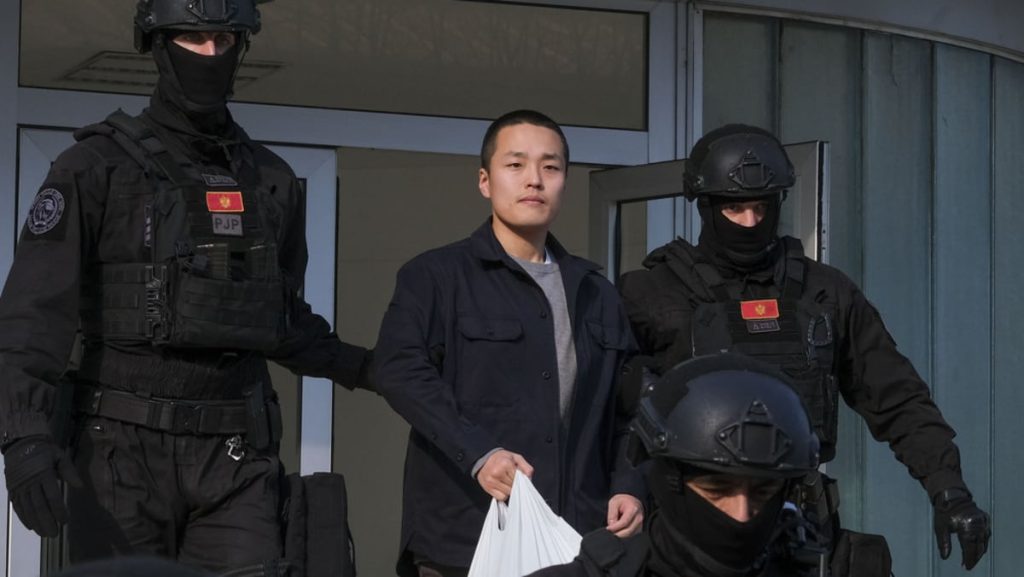The extradition of Do Kwon, the South Korean cryptocurrency entrepreneur, from Montenegro to the United States marks a significant development in the ongoing legal saga surrounding the collapse of his Terraform Labs and its associated cryptocurrencies, TerraUSD and Luna. Kwon, once a prominent figure in the crypto world, is now facing charges of conspiracy to commit fraud in the US, stemming from the multi-billion dollar implosion of his company. This event triggered a cascading effect across the global cryptocurrency market, wiping out an estimated $40 billion of investors’ money and severely eroding confidence in the stability of algorithmic stablecoins. The extradition follows a protracted legal battle and underscores the increasing international scrutiny surrounding the cryptocurrency industry and its key players.
Kwon’s arrest in Montenegro in March 2023, along with his chief financial officer, Han Chang-joon, initially on charges of using forged travel documents, set the stage for a complex extradition process. Both South Korea and the United States sought his extradition, each presenting their own set of charges related to the Terraform Labs collapse. Montenegro’s decision to extradite Kwon to the US, after months of legal proceedings and fluctuating court rulings, reflects the intricate web of international legal cooperation and the challenges posed by cross-border financial crimes in the digital age. The extradition itself was carried out on December 31, 2023, with Kwon being handed over to US law enforcement officials and FBI agents.
The collapse of Terraform Labs and its cryptocurrencies, TerraUSD and Luna, in May 2022, sent shockwaves through the cryptocurrency market. TerraUSD, an algorithmic stablecoin designed to maintain a 1:1 peg with the US dollar, lost its peg dramatically, triggering a cascade of sell-offs that ultimately led to the near-total collapse of both TerraUSD and its sister token, Luna. The event exposed vulnerabilities in the algorithmic stablecoin model and raised concerns about the lack of regulation and oversight in the rapidly evolving cryptocurrency landscape. The fallout from the collapse impacted countless investors, many of whom lost substantial sums, further fueling calls for increased regulatory scrutiny of the crypto industry.
The US charges against Kwon center on allegations of conspiracy to commit fraud, reflecting the authorities’ belief that Kwon intentionally misled investors about the stability and viability of TerraUSD and Luna. The specifics of the charges are likely to revolve around misrepresentations regarding the underlying mechanisms of the algorithmic stablecoin, the risks associated with its design, and the potential for its collapse. The US authorities will likely seek to establish that Kwon knowingly perpetuated a fraudulent scheme that ultimately defrauded investors of billions of dollars. The extradition sets the stage for a high-profile trial that will further test the legal framework surrounding cryptocurrencies and their creators.
Kwon’s Montenegrin legal team has vehemently contested the extradition decision, arguing that it violates European conventions on extradition. They have vowed to appeal the decision to Montenegro’s constitutional court and the European Court of Human Rights. Their arguments likely center on procedural irregularities, challenges to the validity of the US charges, and concerns about the fairness of the extradition process itself. The legal challenges highlight the complexities of international extradition and the potential for conflicting legal interpretations between different jurisdictions. The outcome of these appeals could have broader implications for future extradition cases involving cryptocurrency-related crimes.
The extradition of Do Kwon to the United States represents a significant step toward holding him accountable for the alleged fraud surrounding the collapse of Terraform Labs. The case underscores the increasing international cooperation in pursuing financial crimes in the digital age and the growing recognition of the need for robust regulatory frameworks for the cryptocurrency industry. The trial in the US will be closely watched by investors, regulators, and the broader cryptocurrency community, as it will likely set precedents for future cases involving alleged fraud and market manipulation in the crypto space. The outcome of the trial and the subsequent legal challenges could have a lasting impact on the evolution of the cryptocurrency industry and its regulatory landscape.

